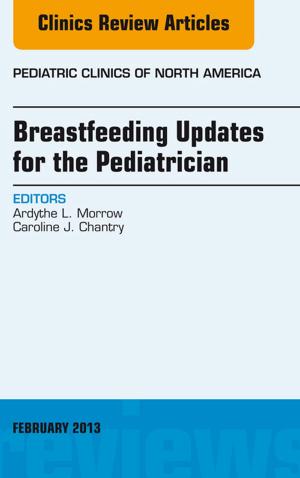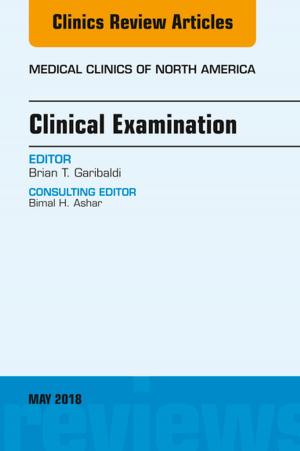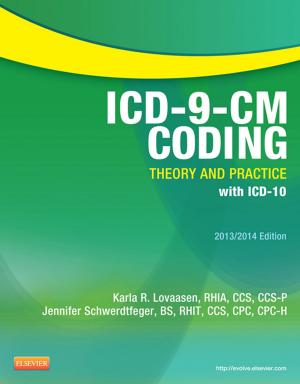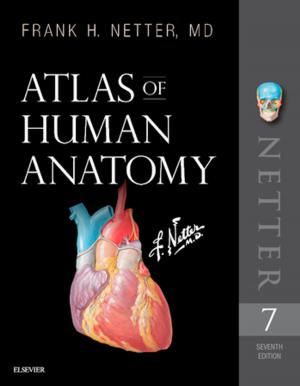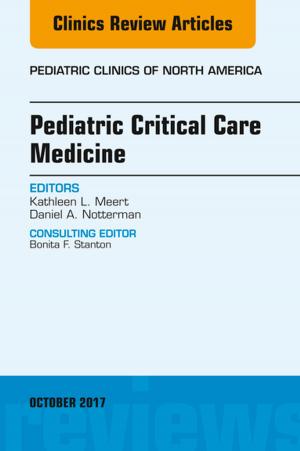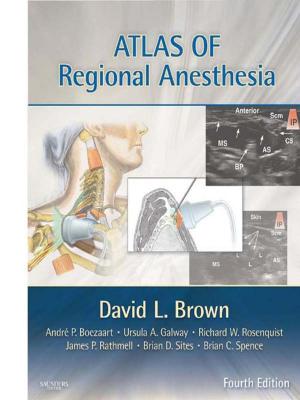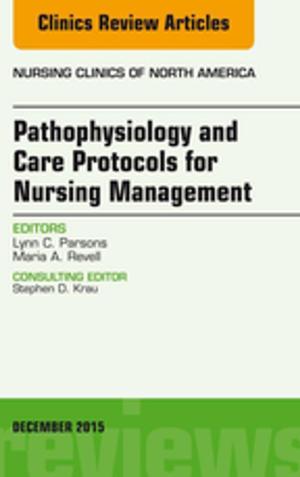Evidence-Based Practice Across the Health Professions
Nonfiction, Health & Well Being, Medical, Allied Health Services, Occupational Therapy, Nursing| Author: | Tammy Hoffmann, BOccThy(Hons), PhD, Sally Bennett, BOccThy(Hons), PhD, Christopher Del Mar, BSc, MA, MB BChir, MD, FRACGP, FAFPHM | ISBN: | 9780729579025 |
| Publisher: | Elsevier Health Sciences | Publication: | December 22, 2009 |
| Imprint: | Churchill Livingstone Australia | Language: | English |
| Author: | Tammy Hoffmann, BOccThy(Hons), PhD, Sally Bennett, BOccThy(Hons), PhD, Christopher Del Mar, BSc, MA, MB BChir, MD, FRACGP, FAFPHM |
| ISBN: | 9780729579025 |
| Publisher: | Elsevier Health Sciences |
| Publication: | December 22, 2009 |
| Imprint: | Churchill Livingstone Australia |
| Language: | English |
Inter-professional education that begins in undergraduate or graduate-entry programs has been accepted by universities as a proven method for fostering collaborative practice among health professionals yet there are few truly multidisciplinary books about evidence-based practice that meet the needs of undergraduate and postgraduate students enrolled in inter-professional courses.
Evidence-based Practice across the Health Professions is designed to meet this need. It provides the reader with an excellent foundation in the knowledge and skills necessary to perform and understand the implications of evidence-based practice within a healthcare environment. It discusses the critical role of clinical reasoning and includes a range of practical strategies to facilitate shared decision making and effective communication with clients for improved client outcomes.
Evidence-based decision making is common to all professions and provides an ideal platform for multidisciplinary work. With this in mind, to facilitate an understanding of how evidence may be integrated into clinical practice there are a number of chapters that contain worked examples from many different health professions that demonstrate appraisals of the methodological quality and interpretation of results for a number of different methodologies (such as randomised controlled trials, diagnostic studies, cohort studies, and qualitative research). Health professionals from a range of disciplines will benefit from familiarity with the intervention being evaluated, the context of the intervention, and the outcome measures used.
Evidence-based Practice across the Health Professions is of direct relevance to all health profession students and practitioners engaged in client care and in making informed clinical decisions in order to achieve better client outcomes.
- worked examples of a wide range of case scenarios and appraised papers (some are discipline-specific and others are multidisciplinary)
- designed to be used by students from a wide range of health professions, thus facilitating the student’s ability to understand the needs of multi-disciplinary health-care teams in a real-life setting
- includes a detailed chapter on implementing evidence into practice and other topics that are not typically addressed in other texts, such as a chapter about how to communicate evidence to clients and another that discusses the role of clinical reasoning in evidence-based practice
- summary points at the end of each chapter
- supported by an Evolve resource package that contains revision questions that utilize a range of question formats
This book will provide the reader with the basic knowledge and skills necessary to be an evidence-based clinician and to understand the implications of evidence-based practice (EBP) in the overall healthcare environment. The book will contain two parts. Part 1 provides the EBP content that is generic to most health professions. The Part 2 provides information about the EBP-related issues that are specific to each health profession and to multidisciplinary teams. Part 1 will cover all of the key steps in the EBP process, such as formulating clinical questions, knowing what type of evidence is appropriate for various clinical questions, finding evidence effectively, appraising the various types of evidence, and making sense of the results sections of papers. It will also include a chapter on research translation and implementing EBP and other topics not typically addressed in other texts, such as how to communicate evidence to clients and other stakeholders, and the importance of clinical reasoning in EBP.
Inter-professional education that begins in undergraduate or graduate-entry programs has been accepted by universities as a proven method for fostering collaborative practice among health professionals yet there are few truly multidisciplinary books about evidence-based practice that meet the needs of undergraduate and postgraduate students enrolled in inter-professional courses.
Evidence-based Practice across the Health Professions is designed to meet this need. It provides the reader with an excellent foundation in the knowledge and skills necessary to perform and understand the implications of evidence-based practice within a healthcare environment. It discusses the critical role of clinical reasoning and includes a range of practical strategies to facilitate shared decision making and effective communication with clients for improved client outcomes.
Evidence-based decision making is common to all professions and provides an ideal platform for multidisciplinary work. With this in mind, to facilitate an understanding of how evidence may be integrated into clinical practice there are a number of chapters that contain worked examples from many different health professions that demonstrate appraisals of the methodological quality and interpretation of results for a number of different methodologies (such as randomised controlled trials, diagnostic studies, cohort studies, and qualitative research). Health professionals from a range of disciplines will benefit from familiarity with the intervention being evaluated, the context of the intervention, and the outcome measures used.
Evidence-based Practice across the Health Professions is of direct relevance to all health profession students and practitioners engaged in client care and in making informed clinical decisions in order to achieve better client outcomes.
- worked examples of a wide range of case scenarios and appraised papers (some are discipline-specific and others are multidisciplinary)
- designed to be used by students from a wide range of health professions, thus facilitating the student’s ability to understand the needs of multi-disciplinary health-care teams in a real-life setting
- includes a detailed chapter on implementing evidence into practice and other topics that are not typically addressed in other texts, such as a chapter about how to communicate evidence to clients and another that discusses the role of clinical reasoning in evidence-based practice
- summary points at the end of each chapter
- supported by an Evolve resource package that contains revision questions that utilize a range of question formats
This book will provide the reader with the basic knowledge and skills necessary to be an evidence-based clinician and to understand the implications of evidence-based practice (EBP) in the overall healthcare environment. The book will contain two parts. Part 1 provides the EBP content that is generic to most health professions. The Part 2 provides information about the EBP-related issues that are specific to each health profession and to multidisciplinary teams. Part 1 will cover all of the key steps in the EBP process, such as formulating clinical questions, knowing what type of evidence is appropriate for various clinical questions, finding evidence effectively, appraising the various types of evidence, and making sense of the results sections of papers. It will also include a chapter on research translation and implementing EBP and other topics not typically addressed in other texts, such as how to communicate evidence to clients and other stakeholders, and the importance of clinical reasoning in EBP.


